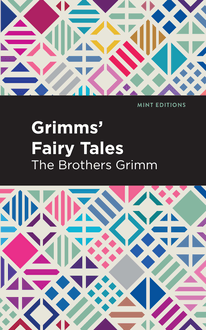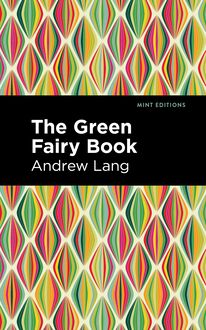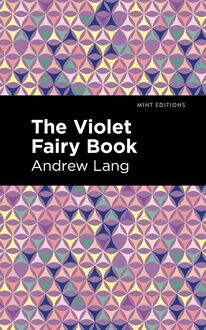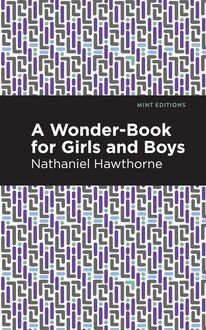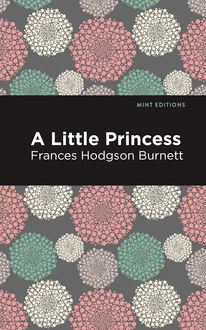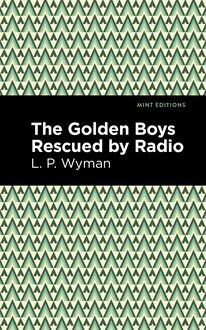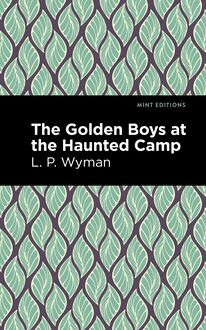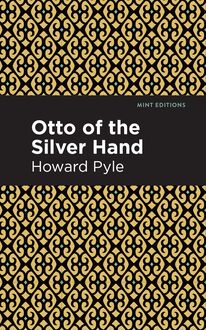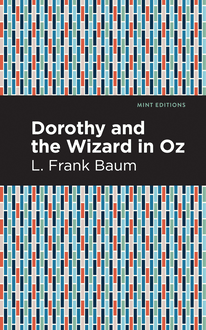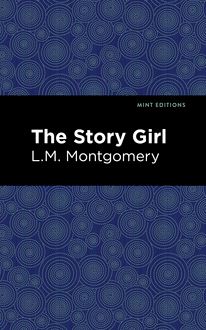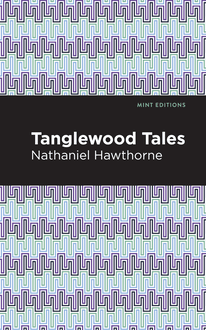-
 Univers
Univers
-
 Ebooks
Ebooks
-
 Livres audio
Livres audio
-
 Presse
Presse
-
 Podcasts
Podcasts
-
 BD
BD
-
 Documents
Documents
-
- Cours
- Révisions
- Ressources pédagogiques
- Sciences de l’éducation
- Manuels scolaires
- Langues
- Travaux de classe
- Annales de BEP
- Etudes supérieures
- Maternelle et primaire
- Fiches de lecture
- Orientation scolaire
- Méthodologie
- Corrigés de devoir
- Annales d’examens et concours
- Annales du bac
- Annales du brevet
- Rapports de stage
La lecture à portée de main
Vous pourrez modifier la taille du texte de cet ouvrage
Découvre YouScribe en t'inscrivant gratuitement
Je m'inscrisDécouvre YouScribe en t'inscrivant gratuitement
Je m'inscrisEn savoir plus
Vous pourrez modifier la taille du texte de cet ouvrage
En savoir plus

Description
The Lilac Fairy Book is a collection of short fiction comprised of over thirty tales ranging from a variety of descents, including Portuguese, Irish, British, and Celtic. Each tale is written in lively prose, depicting unforgettable characters. In The Brown Bear of Norway, a kind-hearted princess falls in love with a prince who is cursed to live as a bear by day. The Enchanted Deer follows a fisherman’s son named Ian, who, after his father’s death, decides to leave the home of his widowed mother in search of suitable shelter in the countryside. Before he can find a reliable residence, Ian meets an enchanted deer who is mysteriously willing to assist the boy in his endeavors, asking little in return. With stories ranging in origins, lengths, and tones, The Lilac Fairy Book by Andrew and Leonora Lang provides a charming experience that allows readers to learn about different cultures. Featuring folklore both rare and classic, The Lilac Fairy Book is wonderfully written and is engaging for a wide audience. This edition of The Lilac Fairy Book by Andrew and Leonora Lang now features an eye-catching new cover design and is printed in a font that is both modern and readable. With these accommodations, this edition of The Lilac Fairy Book creates an accessible and pleasant reading experience for modern audiences while restoring the original imagination and mastery of Andrew and Leonora Lang’s work.
Sujets
Informations
| Publié par | Mint Editions |
| Date de parution | 08 juin 2021 |
| Nombre de lectures | 0 |
| EAN13 | 9781513286730 |
| Langue | English |
| Poids de l'ouvrage | 2 Mo |
Informations légales : prix de location à la page 0,0500€. Cette information est donnée uniquement à titre indicatif conformément à la législation en vigueur.
Extrait
The Lilac Fairy Book
Andrew Lang
The Lilac Fairy Book was first published in 1910.
This edition published by Mint Editions 2021.
ISBN 9781513281711 | E-ISBN 9781513286730
Published by Mint Editions®
minteditionbooks.com
Publishing Director: Jennifer Newens
Design & Production: Rachel Lopez Metzger
Project Manager: Micaela Clark
Typesetting: Westchester Publishing Service
C ONTENTS P REFACE T HE S HIFTY L AD T HE F ALSE P RINCE AND THE T RUE T HE J OGI ’ S P UNISHMENT T HE H EART OF A M ONKEY T HE F AIRY N URSE A L OST P ARADISE H OW B RAVE W ALTER H UNTED W OLVES T HE K ING OF THE W ATERFALLS A F RENCH P UCK T HE T HREE C ROWNS T HE S TORY OF A V ERY B AD B OY T HE B ROWN B EAR OF N ORWAY L ITTLE L ASSE “M OTI ” T HE E NCHANTED D EER A F ISH S TORY T HE W ONDERFUL T UNE T HE R ICH B ROTHER AND THE P OOR B ROTHER T HE O NE - HANDED G IRL T HE B ONES OF D JULUNG T HE S EA K ING ’ S G IFT T HE R ASPBERRY W ORM T HE S TONES OF P LOUHINEC T HE C ASTLE OF K ERGLAS T HE B ATTLE OF THE B IRDS T HE L ADY OF THE F OUNTAIN T HE F OUR G IFTS T HE G ROAC ’ H OF THE I SLE OF L OK T HE E SCAPE OF THE M OUSE T HE B ELIEVING H USBANDS T HE H OODIE -C ROW T HE B ROWNIE OF THE L AKE T HE W INNING OF O LWEN
P REFACE
What cases are you engaged in at present?” “Are you stopping many teeth just now?” “What people have you converted lately?” Do ladies put these questions to the men—lawyers, dentists, clergymen, and so forth—who happen to sit next them at dinner parties?
I do not know whether ladies thus indicate their interest in the occupations of their casual neighbours at the hospitable board. But if they do not know me, or do not know me well, they generally ask “Are you writing anything now?” (as if they should ask a painter “Are you painting anything now?” or a lawyer “Have you any cases at present?“). Sometimes they are more definite and inquire “What are you writing now?” as if I must be writing something—which, indeed, is the case, though I dislike being reminded of it. It is an awkward question, because the fair being does not care a bawbee what I am writing; nor would she be much enlightened if I replied “Madam, I am engaged on a treatise intended to prove that Normal is prior to Conceptional Totemism”—though that answer would be as true in fact as obscure in significance. The best plan seems to be to answer that I have entirely abandoned mere literature, and am contemplating a book on “The Causes of Early Blight in the Potato,” a melancholy circumstance which threatens to deprive us of our chief esculent root. The inquirer would never be undeceived. One nymph who, like the rest, could not keep off the horrid topic of my occupation, said “You never write anything but fairy books, do you?” A French gentleman, too, an educationist and expert in portraits of Queen Mary, once sent me a newspaper article in which he had written that I was exclusively devoted to the composition of fairy books, and nothing else. He then came to England, visited me, and found that I knew rather more about portraits of Queen Mary than he did.
In truth I never did write any fairy books in my life, except “Prince Prigio,” “Prince Ricardo,” and “Tales from a Fairy Court”—that of the aforesaid Prigio. I take this opportunity of recommending these fairy books—poor things, but my own—to parents and guardians who may never have heard of them. They are rich in romantic adventure, and the Princes always marry the right Princesses and live happy ever afterwards; while the wicked witches, stepmothers, tutors and governesses are never cruelly punished, but retire to the country on ample pensions. I hate cruelty: I never put a wicked stepmother in a barrel and send her tobogganing down a hill. It is true that Prince Ricardo did kill the Yellow Dwarf; but that was in fair fight, sword in hand, and the dwarf, peace to his ashes! died in harness .
The object of these confessions is not only that of advertising my own fairy books (which are not “out of print;” if your bookseller says so, the truth is not in him), but of giving credit where credit is due. The fairy books have been almost wholly the work of Mrs. Lang, who has translated and adapted them from the French, German, Portuguese, Italian, Spanish, Catalan, and other languages.
My part has been that of Adam, according to Mark Twain, in the Garden of Eden. Eve worked, Adam superintended. I also superintend. I find out where the stories are, and advise, and, in short, superintend. I do not write the stories out of my own head. The reputation of having written all the fairy books (an European reputation in nurseries and the United States of America) is “the burden of an honour unto which I was not born.” It weighs upon and is killing me, as the general fash of being the wife of the Lord of Burleigh, Burleigh House by Stamford Town, was too much for the village maiden espoused by that peer.
Nobody really wrote most of the stories. People told them in all parts of the world long before Egyptian hieroglyphics or Cretan signs or Cyprian syllabaries, or alphabets were invented. They are older than reading and writing, and arose like wild flowers before men had any education to quarrel over. The grannies told them to the grandchildren, and when the grandchildren became grannies they repeated the same old tales to the new generation. Homer knew the stories and made up the “Odyssey” out of half a dozen of them. All the history of Greece till about 800 B.C. is a string of the fairy tales, all about Theseus and Heracles and Oedipus and Minos and Perseus is a Cabinet des Fées , a collection of fairy tales. Shakespeare took them and put bits of them into “King Lear” and other plays; he could not have made them up himself, great as he was. Let ladies and gentlemen think of this when they sit down to write fairy tales, and have them nicely typed, and send them to Messrs. Longman & Co. to be published. They think that to write a new fairy tale is easy work. They are mistaken: the thing is impossible. Nobody can write a new fairy tale; you can only mix up and dress up the old, old stories, and put the characters into new dresses, as Miss Thackeray did so well in “Five Old Friends.” If any big girl of fourteen reads this preface, let her insist on being presented with “Five Old Friends.”
But the three hundred and sixty-five authors who try to write new fairy tales are very tiresome. They always begin with a little boy or girl who goes out and meets the fairies of polyanthuses and gardenias and apple blossoms: “Flowers and fruits, and other winged things.” These fairies try to be funny, and fail; or they try to preach, and succeed. Real fairies never preach or talk slang. At the end, the little boy or girl wakes up and finds that he has been dreaming.
Such are the new fairy stories. May we be preserved from all the sort of them!
Our stories are almost all old, some from Ireland, before that island was as celebrated for her wrongs as for her verdure; some from Asia, made, I dare say, before the Aryan invasion; some from Moydart, Knoydart, Morar and Ardnamurchan, where the sea streams run like great clear rivers and the saw-edged hills are blue, and men remember Prince Charlie. Some are from Portugal, where the golden fruits grow in the Garden of the Hesperides; and some are from wild Wales, and were told at Arthur’s Court; and others come from the firesides of the kinsmen of the Welsh, the Bretons. There are also modern tales by a learned Scandinavian named Topelius.
All the stories were translated or adapted by Mrs. Lang, except “The Jogi’s Punishment” and “Moti,” done by Major Campbell out of the Pushtoo language; “How Brave Walter hunted Wolves,” which, with “Little Lasse” and “The Raspberry Worm,” was done from Topelius by Miss Harding; and “The Sea King’s Gift,” by Miss Christie, from the same author.
It has been suggested to the Editor that children and parents and guardians would like “The Grey True Ghost-Story Book.” He knows that the children would like it well, and he would gladly give it to them; but about the taste of fond anxious mothers and kind aunts he is not quite so certain. Before he was twelve the Editor knew true ghost stories enough to fill a volume. They were a pure joy till bedtime, but then, and later, were not wholly a source of unmixed pleasure. At that time the Editor was not afraid of the dark, for he thought, “If a ghost is here, we can’t see him.” But when older and better informed persons said that ghosts brought their own light with them (which is too true), then one’s emotions were such as parents do not desire the young to endure. For this reason “The Grey True Ghost-Story Book” is never likely to be illustrated by Mr. Ford.
T HE S HIFTY L AD 1
I n the land of Erin there dwelt long ago a widow who had an only son. He was a clever boy, so she saved up enough money to send him to school, and, as soon as he was old enough, to apprentice him to any trade that he would choose. But when the time came, he said he would not be bound to any trade, and that he meant to be a thief.
Now his mother was very sorrowful when she heard of this, but she knew quite well that if she tried to stop his having his own way he would only grow more determined to get it. So all the answer she made was that the end of thieves was hanging at the bridge of Dublin, and then she left him alone, hoping that when he was older he might become more sensible.
One day she was going to church to hear a sermon from a great preacher, and she begged the Shifty Lad, as the neighbours called him from the tricks he played, to come with her. But he only laughed and declared that he did not like sermons, adding:
“However, I will promise you this, that the first trade you hear named after you come out from church shall be my trade for the rest of my life.”
These words gave a little comfort to the poor woman, and her heart was lighter than before as she bade him farewell.
When the Shifty La
-
 Univers
Univers
-
 Ebooks
Ebooks
-
 Livres audio
Livres audio
-
 Presse
Presse
-
 Podcasts
Podcasts
-
 BD
BD
-
 Documents
Documents
-
Jeunesse
-
Littérature
-
Ressources professionnelles
-
Santé et bien-être
-
Savoirs
-
Education
-
Loisirs et hobbies
-
Art, musique et cinéma
-
Actualité et débat de société
-
Jeunesse
-
Littérature
-
Ressources professionnelles
-
Santé et bien-être
-
Savoirs
-
Education
-
Loisirs et hobbies
-
Art, musique et cinéma
-
Actualité et débat de société
-
Actualités
-
Lifestyle
-
Presse jeunesse
-
Presse professionnelle
-
Pratique
-
Presse sportive
-
Presse internationale
-
Culture & Médias
-
Action et Aventures
-
Science-fiction et Fantasy
-
Société
-
Jeunesse
-
Littérature
-
Ressources professionnelles
-
Santé et bien-être
-
Savoirs
-
Education
-
Loisirs et hobbies
-
Art, musique et cinéma
-
Actualité et débat de société
- Cours
- Révisions
- Ressources pédagogiques
- Sciences de l’éducation
- Manuels scolaires
- Langues
- Travaux de classe
- Annales de BEP
- Etudes supérieures
- Maternelle et primaire
- Fiches de lecture
- Orientation scolaire
- Méthodologie
- Corrigés de devoir
- Annales d’examens et concours
- Annales du bac
- Annales du brevet
- Rapports de stage
